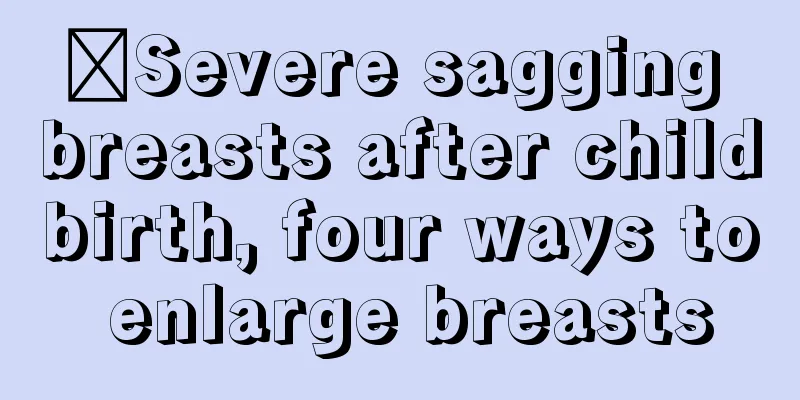How long does the egg survive after ovulation and what symptoms will occur when it is released?

|
If female friends want to get pregnant, they must know when they ovulate and some basic knowledge about ovulation. After ovulation, the egg can survive for 48 hours. If you miss 48 hours, conception will not be possible, so you must understand this clearly. How long does the egg survive after it is released? How long can an egg survive after being released? 48 hours lifespan, 24 hours puberty. Compared to the 2-3 day lifespan of sperm, the lifespan of our eggs is shorter, with a maximum lifespan of only 48 hours. Their ability to fertilize is strongest within 24 hours after being released. If prospective parents want to conceive, it is best to start conceiving before the egg is released so that Mr. Sperm will not miss Miss Egg. Because the meeting and combination of egg and sperm must be completed within 48 hours of egg discharge. If the egg cannot meet the sperm to form a fertilized egg due to various reasons after being released, it will die after 48-72 hours, resulting in the failure of conception, and you can only wait for the next ovulation period. But if the egg does not develop well, the chances of pregnancy are greatly reduced. What are the symptoms after egg release? Generally speaking, a woman's ovulation date is usually about 14 days before her next menstruation. To be on the safe side, the 5 days before and 4 days after ovulation, together with the ovulation day, a total of 10 days are usually called the ovulation period. During ovulation, a woman's ovaries release 1 to 2 eggs. So what are the symptoms after the egg is released? Let’s learn about it together below. 1. Anal swelling or lower abdominal pain on one side The mature egg is discharged from the surface of the ovary and passes through the follicle on the surface of the egg. A small amount of fluid in the follicle will flow into the pelvic cavity. The woman will feel a slight falling sensation in the anus and slight pain in the lower abdomen on one side. 2. Bleeding during egg discharge and rising body temperature Because of the changes in estrogen secretion in the body before and after ovulation, there may be a small amount of uterine bleeding. At the same time, the body temperature rises slightly after ovulation. If you can measure the basal body temperature every morning, you can know the ovulation date based on the changes in body temperature. 3. Increased vaginal discharge After the egg is released, the amount of secretion will increase significantly, and it will become watery, transparent and clear, with high stringiness, and the woman's genitals will become moist. This increase in vaginal discharge usually lasts for 2 to 3 days. |
<<: Teach you how to promote follicle maturation?
>>: Corpus luteum rupture and pelvic effusion, be kind to yourself
Recommend
Does the water below a girl have a smell?
A woman's body will undergo a series of chang...
What is sweet potato? Is sweet potato the same as sweet potato?
Sweet potato is a very high-yield food crop, nati...
Normal values of ultrasound at 38 weeks of pregnancy
Pregnant mothers are very concerned about the cha...
How to use mugwort to treat gynecological diseases
During the traditional Dragon Boat Festival, peop...
Why do nipples become larger during pregnancy?
Many people have very small nipples due to malnut...
What to do if your uterus hurts after a cesarean section
What to do if you have uterine pain after cesarea...
Don't be careless if your voice is hoarse, beware of laryngeal cancer
Author: Li Ruichen, Department of Eye, Ear, Nose ...
What are the benefits of uterine and ovarian maintenance?
Generally, women need to start various maintenanc...
Symptoms of dampness in women
Our body is a complete whole, and we will feel un...
Is there any scientific basis for the idea that hiccups can be cured by being startled?
Reviewer of this article: Chen Haixu, Deputy Dire...
Is the cerebellum also playing "thrilling drift"? ——Unveiling the secrets of Chiari malformation
...
Is there any cure for low progesterone if hcg is doubled?
The fetus is very sensitive, especially in the ea...
[Medical Q&A] Can birth defects be prevented?
Author: Zhao Quming, deputy chief physician, Chil...
The benefits of eating Polygonum multiflorum for women
When it comes to Chinese herbal medicine, most pe...









